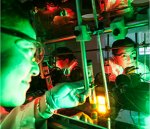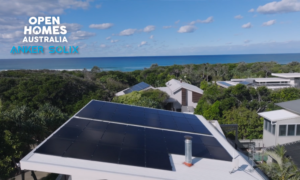Queensland University of Technology scientist Dr Sarina Sarina has received honours from one of Germany’s top research institutes for her work on using solar energy to turn raw materials into valuable chemicals.
Byproducts of oil, farm waste and minerals can be transformed into usable everyday products such as plastics, detergents and medicines; but the process requires a great deal of energy.
“The problem is it takes a massive amount of electrical energy to make the heat required to convert the crude materials,” Dr Sarina, from QUT’s Science and Engineering Faculty, said.
“They must be heated to 200 or 300 degrees to achieve the chemical conversion and so this process takes about one third of the energy consumed by manufacturing.”
Dr Sarina was awarded the Alexander von Humboldt fellowship at Berlin’s Max Planck Institute in order to further her progress on using solar nanotechnology to power this chemical reaction at ambient temperatures (about 25°C).
“The key is to use metal nanoparticles such as gold nanoparticles as a ‘photocatalyst’, which absorbs light and converts the raw materials to useable products,” Dr Sarina explained.
“All we will need is a giant lens and gold nanoparticles as the photocatalyst to drive the chemical reactions – and all at room temperature so we won’t need furnaces.”
Traditional photocatalysts made from metal oxide are only able to access UV light, which accounts for just four per cent of the solar spectrum. Sarina’s work will focus on developing super-efficient “bimetallic” photocatalysts that utilise the other 96 per cent of visible and infrared light.
“Gold nanoparticles, apart from being very expensive, can drive only a small number of reactions but we have found that when we add palladium to the gold nanoparticles it can drive many more reactions than gold by itself,” Sarina said.
“I will be working at the Max Planck Institute to develop cheaper, more efficient photocatalysts from bimetallic nanoparticles such as copper or silver and palladium or the other “transition metals” such as iridium and rhodium to find which combination would drive a specific chemical reaction.”














































